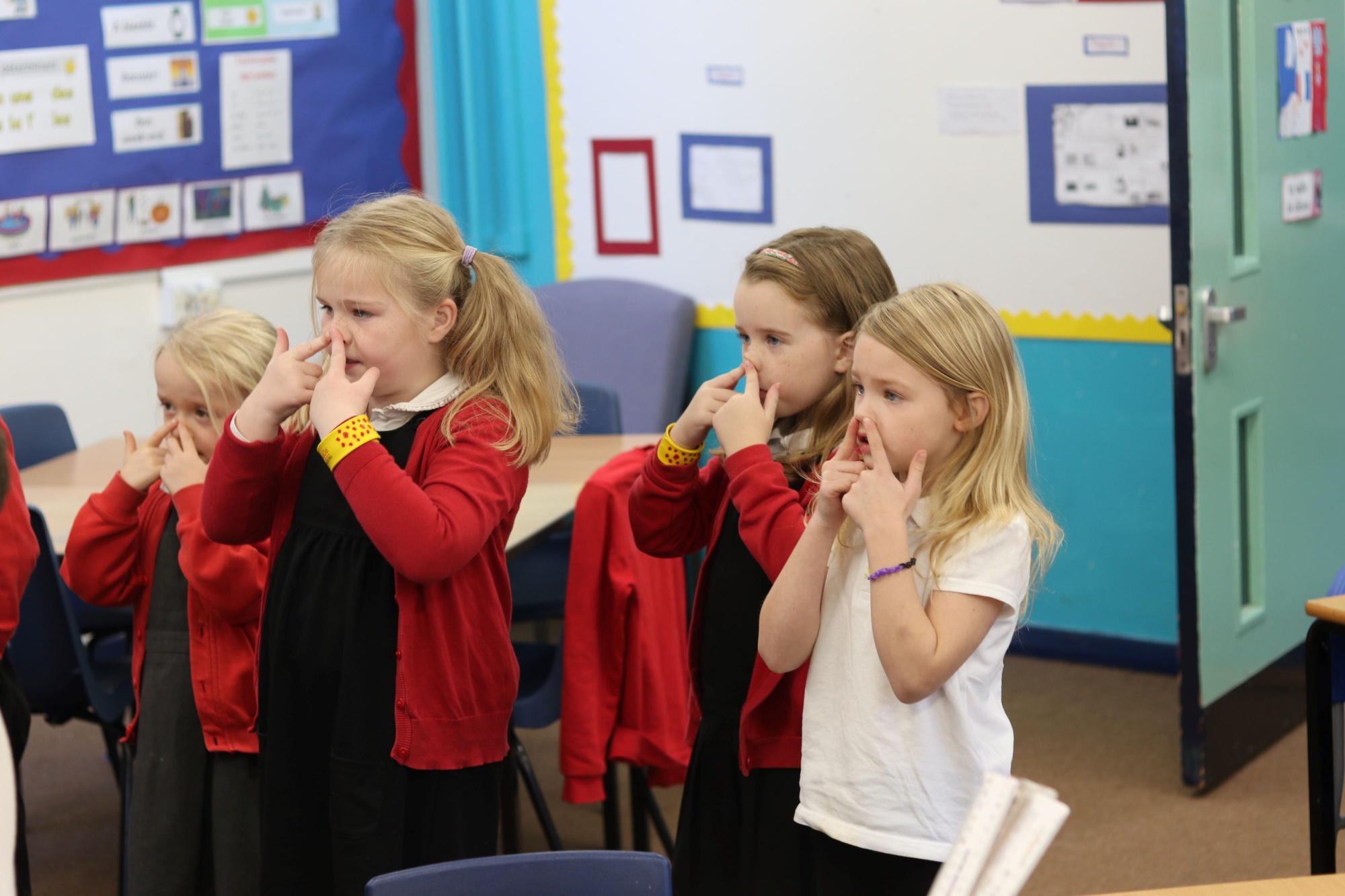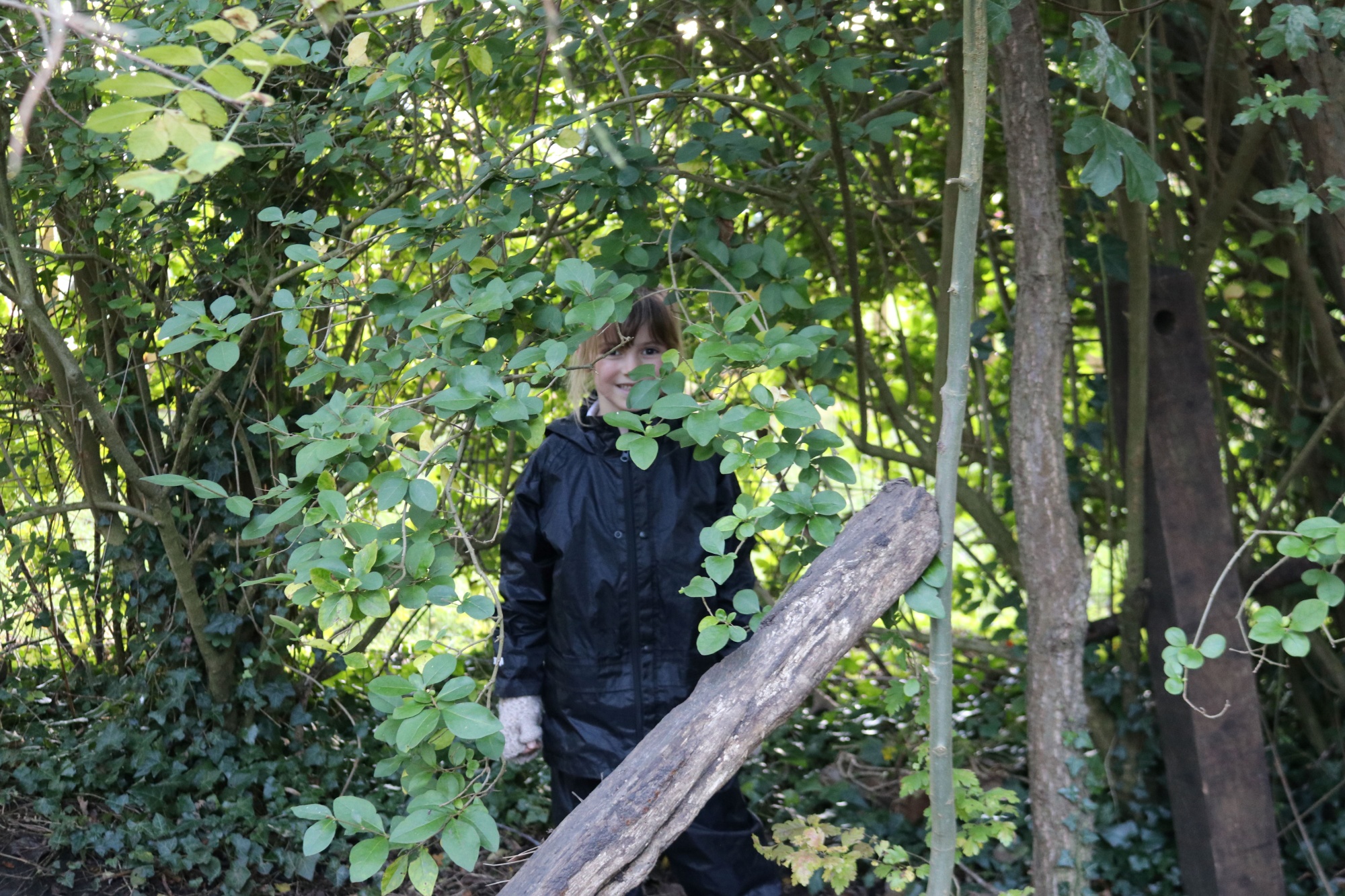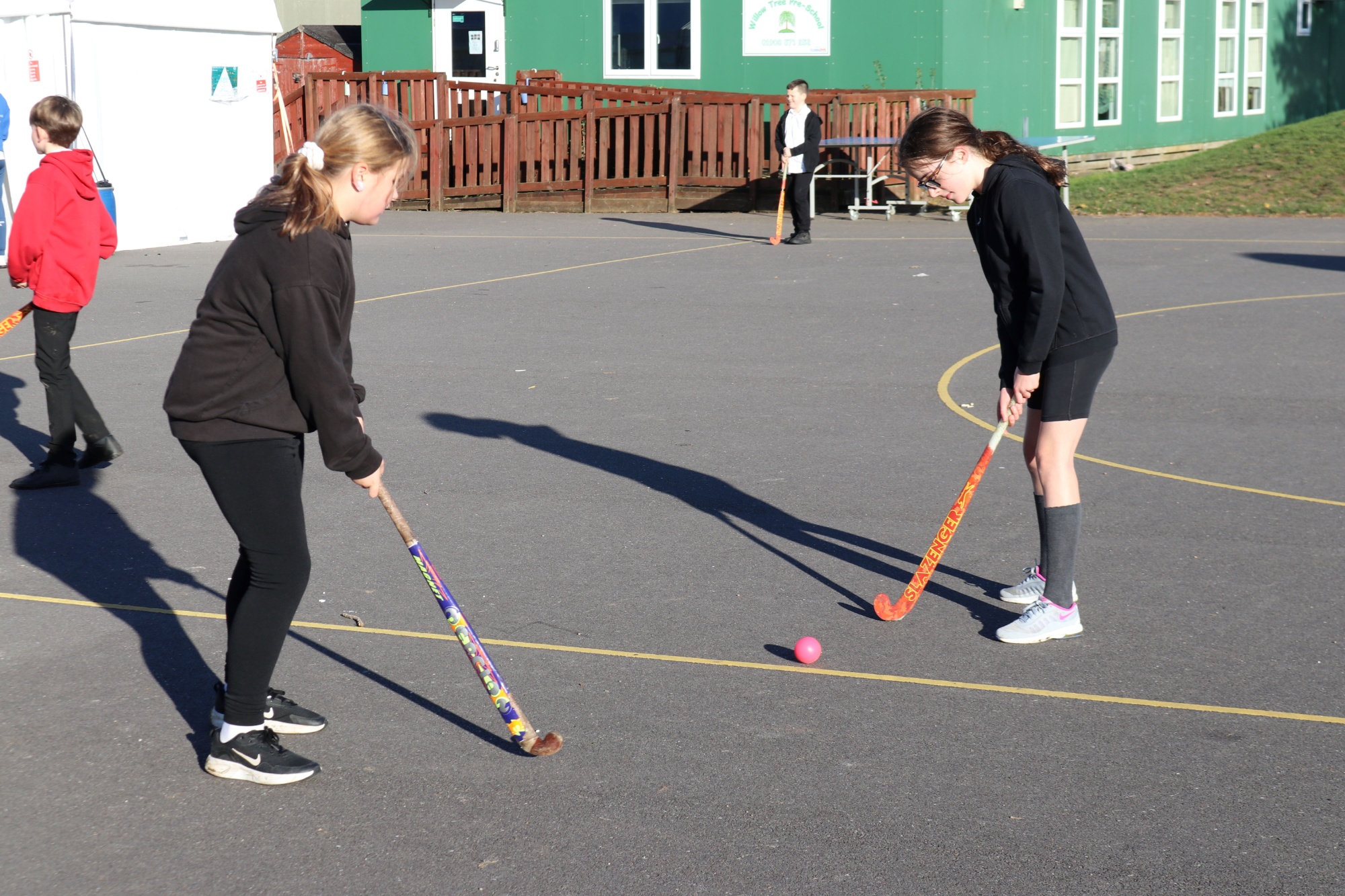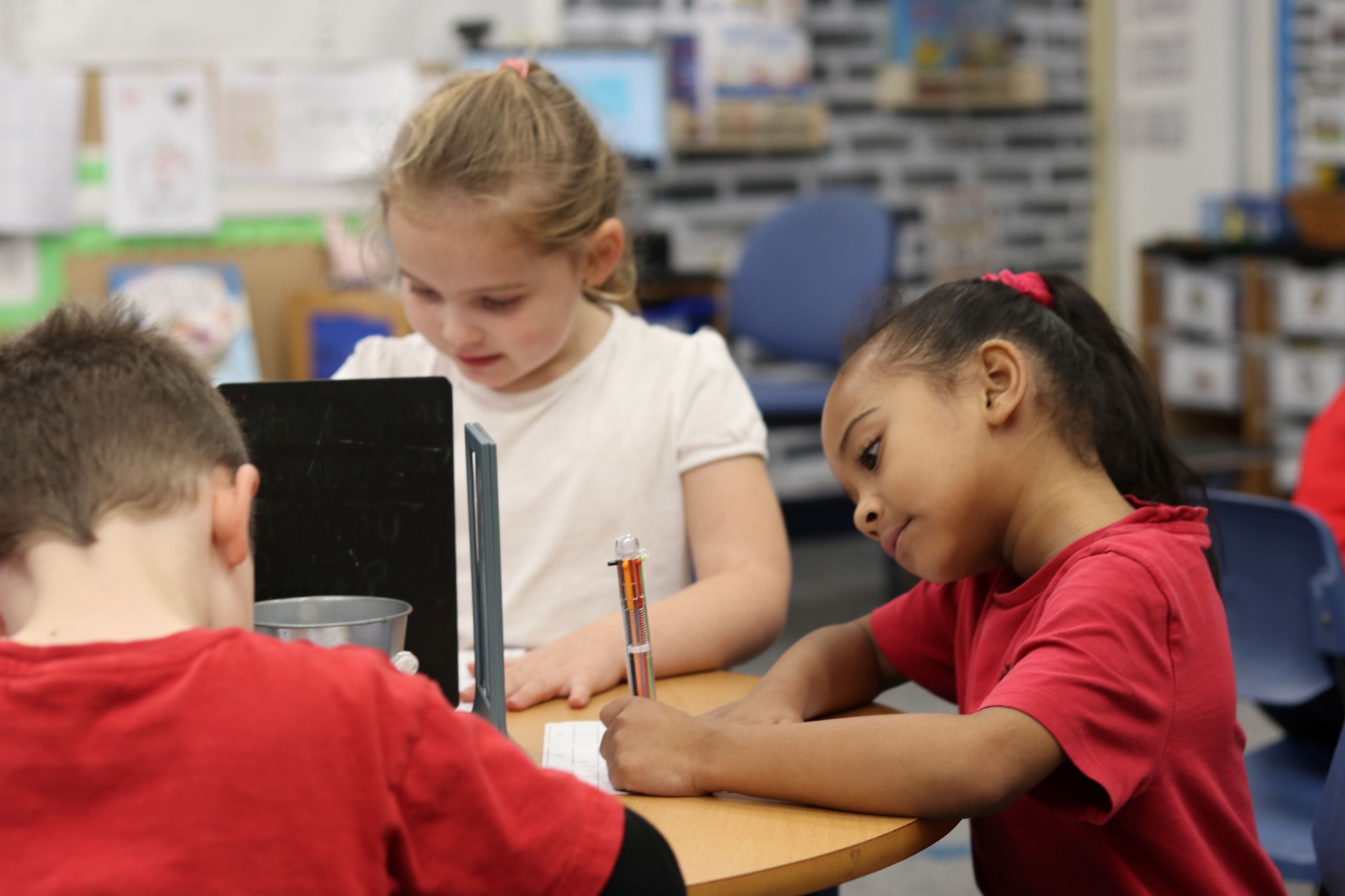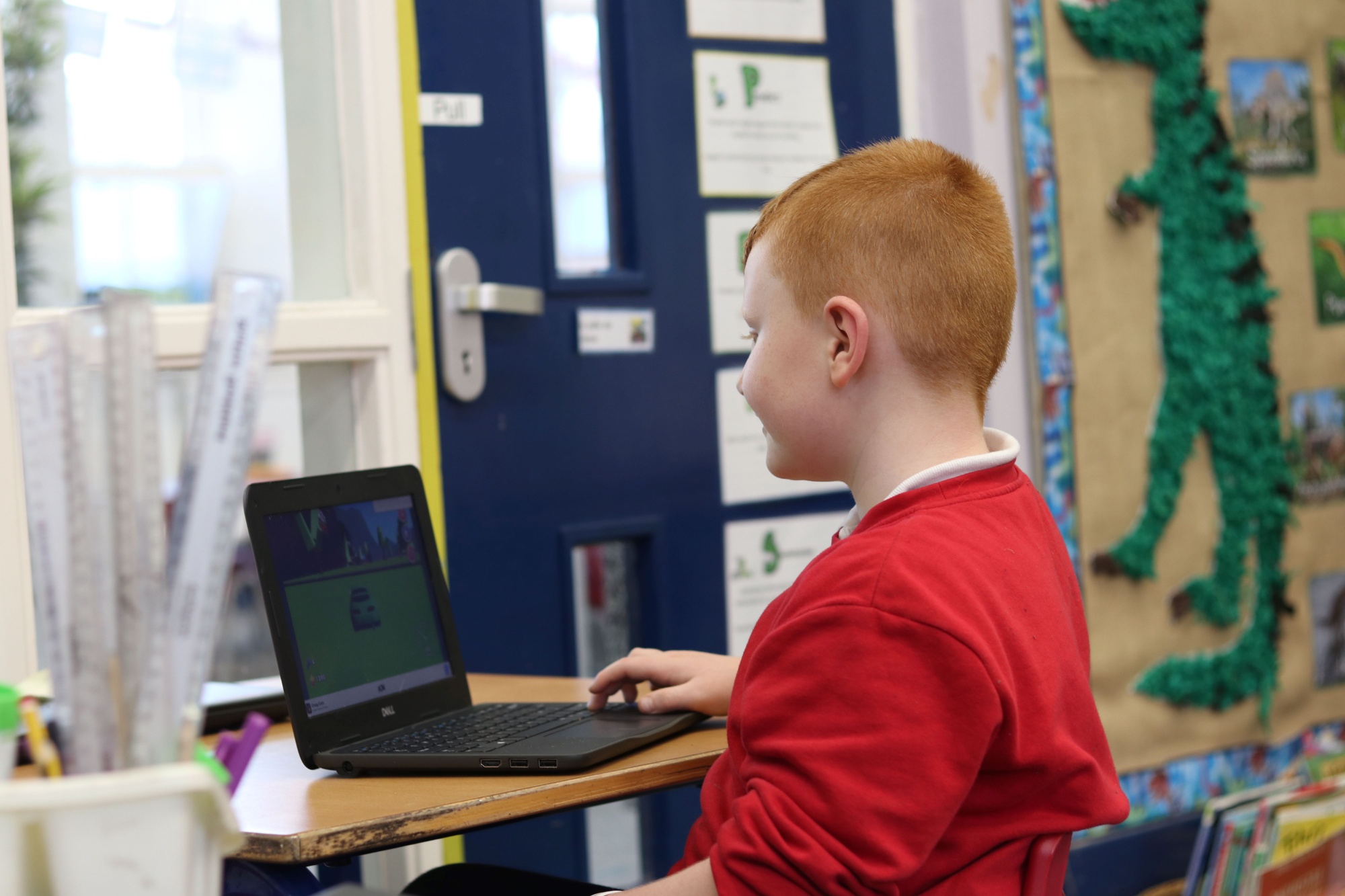Computing
Intent
At Deanshanger Primary School, we aim to prepare our pupils for their future by giving them the opportunities to gain knowledge and develop skills that will prepare them for an ever-changing digital world. The ability to communicate digitally has become an important life skill in the modern world. We want our pupils to be curious, independent learners who are able to use technology to communicate safely and adeptly. When teaching computing, we aim to equip our children with the skills required to use computers effectively to enable them to maximise their potential. To do so, we utilise the Purple Mash scheme of work that promotes resilience, independence, critical thinking, communication skills and problem solving. We deliver a broad curriculum which helps children to enjoy learning within a progressive sequence.
We also firmly believe the importance of delivering a high-quality E-Safety curriculum. E-safety is embedded throughout the computing curriculum and supports and consolidates the strong presence of E-safety within our PSHCE curriculum. As technology develops, so does the need for a better understanding of how to use it in a responsible manner. The education of E-safety is therefore essential, to ensure children are equipped with the skills to recognise risks online, to be critically aware of the materials and content they access online, along with guidance on how to accurately validate information accessed via the internet.
We recognise that Computing unlocks pathways for children to be curious individuals and is a powerful communication tool in the modern world.
Implementation
At DPS, computing is taught for one hour every week. In addition to stand-alone lessons, skills taught are incorporated into other subjects, given the cross curricular nature of computing and the opportunities to expand and develop lessons that this brings. We use Purple Mash as a comprehensive scheme of work, teachers adapt the resources to meet the specific needs and interests of each particular cohort. Purple Mash addresses the statutory aspects of the National Curriculum by:
· Computer Science – Pupils are taught the principles of information and computation, how digital systems work, and how to put this knowledge to use through programming.
· Information Technology – Pupils are equipped to purposefully create programs, systems and a range of content in order to develop products and solutions. They will be able to collect, analyse, evaluate and present data and information.
· Digital Literacy – Pupils are taught to use, access and express oneself through digital technology, including a critical understanding of technology’s impact on the individual and society, at a level suitable for the future and as active participants in a digital world.
We continue to keep up to date with the latest technology. A range of resources are available which successfully support the delivery of the computing curriculum. We have a computing suite which is set up effectively for lessons to take place. We also have a range of apps and programmes to support the teaching and learning of computing. We have a green screen in the computing suite, several Beebots, tablets, laptops and Micro-Bit devices.
We also have a group of Digital Leaders who are aware of the importance of their role, supporting staff with day-to-day good practice when it comes to equipment, supporting other pupils, and meeting to suggest improvements based on the opinions of children in the school.
We promote safe and responsible use of the Internet through teaching (it is embedded in the curriculum from the earliest stage in school) and also events (such as Internet Safety Week) and assemblies. We undertake training wherever possible to keep ourselves updated and our approach refreshed. We keep parents informed via Class Dojo posts and information evenings.
Impact
Key Stage 1 outcomes
- Understand what algorithms are, how they are implemented as programs on digital devices, and that programs execute by following a sequence of instructions.
- Write and test simple programs.
- Organise, store, manipulate and retrieve data in a range of digital formats.
- Communicate safely and respectfully online, keeping personal information private, and recognise common uses of information technology beyond school.
Key Stage 2 outcomes
- Design and write programs that accomplish specific goals, including controlling or simulating physical systems; solve problems by decomposing them into smaller parts.
- Describe how Internet search engines find and store data; use search engines effectively; be discerning in evaluating digital content; respect individuals and intellectual property; use technology responsibly, securely and safely.
- Use sequence, selection and repetition in programs; work with variables and various forms of input and output; generate appropriate inputs and predicted outputs to test programs.
- Select, use and combine a variety of software (including internet services) on a range of digital devices to accomplish given goals, including collecting, analysing, evaluating and presenting data and information.
- Use logical reasoning to explain how a simple algorithm works and to detect and correct errors in algorithms and programs.
- Understand computer networks including the internet; how they can provide multiple services, such as the world-wide web; and the opportunities they offer for communication and collaboration.
- Describe how internet search engines find and store data; use search engines effectively; be discerning in evaluating digital content; respect individuals and intellectual property; use technology responsibly, securely and safely.
Overall, pupils will be able to share their knowledge of how to be a responsible user of technology through discussion when questioned. They will be prepared for the next stage in their lives, knowing how to be a responsible user of technology in the wider world and most importantly, know where to seek support. Pupils will be familiar with and will discuss their understanding of the three main strands and will know key vocabulary associated with these. Confidence in this subject will also mean that pupils are able to be more independent and competent in life skills such as problem solving and logical thinking.
